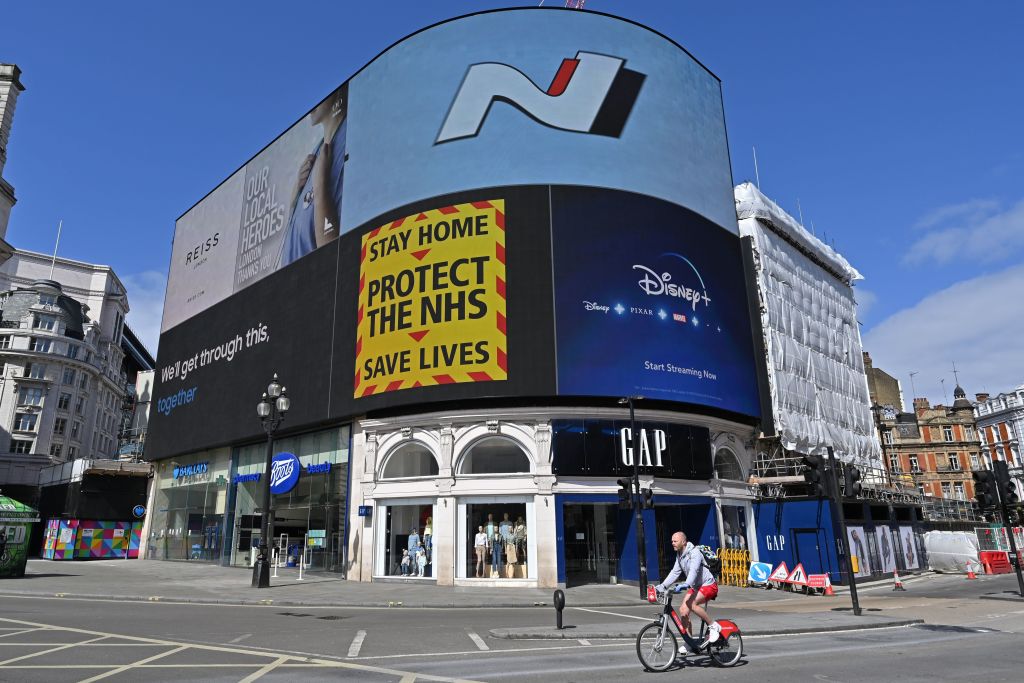Six weeks ago Britain stood as a bit of an outlier among western countries in that our government seemed set to manage, rather than suppress, coronavirus. It rejected the idea that it was pursuing ‘herd immunity,’ but seemed to do just that. Now we stand out for a different reason: we are the only country which appears to be committing itself to remain in lockdown, or close approximation thereof, until a vaccine arrives. In much of Europe, lockdown restrictions are tentatively being relaxed as infection rates and death rates fall. Here, ministers tell us it is far too early for that sort of thing – we will need restrictions on our lives, in one form or another, until we have a vaccine available.
Is that a plausible strategy? On the positive side, trials of a new vaccine began this week. But don’t hold your breath. When asked on Thursday how long it might be before the vaccine was available to be used by the general public, Chief Medical Officer Chris Whitty said that it would be a year away at the least – and that would be pushing it. Whitty’s US counterpart Anthony Fauci has suggested 12-18 months might be a more realistic minimum. Five years is a more traditional gestation period for a new vaccine. Medical history is littered with vaccines which arrived only after an epidemic had died away for other reasons, SARS and the West African outbreak of Ebola being the prime examples.
Then there are the vaccines which failed to arrive at all. I remember in the mid-1980s how were told endlessly that an HIV vaccine was ‘four to five’ years away. We are still waiting.
Then there are the vaccines which failed to arrive at all. I remember in the mid-1980s how were told endlessly that an HIV vaccine was ‘four to five’ years away. We are still waiting. Virologists seem to be agreed that Covid-19 is a much better candidate for a vaccine – it is more stable, being less inclined to mutate, and therefore presents a static rather than moving target. But would you bet the economy on it?
Drug development in general has been sped up in recent years. Where once vast amounts of trial and error were required to identify potential new drugs, now it is possible to employ AI in order to create virtual molecules and to predict their qualities. But there is no short-cut for the next stage: real-life trials in humans to determine a potential vaccine’s efficacy and safety. Anyone who thinks we can take short-cuts on that should remember the Northwick Park drug trial in 2006, when six otherwise healthy volunteers suffered organ failure as a result of a side-effect which had not been foreseen. Most new drugs are going to be taken by relatively few people, but in the case of a Covid-19 vaccine we are looking at a drug which is potentially going to be administered to 65 million people. If it were to generate an adverse reaction in just 0.1 percent of the population we could end with a human tragedy on the same scale as coronavirus itself, only this one man-made.
Could we get out of lockdown thanks to a therapeutic drug which doesn’t prevent spread of the coronavirus but which tackles its symptoms so that we can better tolerate it? That’s perhaps more likely to happen quickly, but many of the same issues apply. Until Friday we thought we possibly had such a drug in the form of Remdesivir, being developed by Californian-based Gilead Sciences – until leaked documents from the World Health Organisation revealed disappointing trials in China, involving both the efficacy of the drug and also unpleasant side effects.
Vaccines and therapeutic drugs might be available in a year or so’s time. But it is a foolish strategy to rely on them, and to keep us in lockdown – or other severe social-distancing measures – until such a time. We would be betting the economy on a holy grail which might never arrive.
This article is free to read
To unlock more articles, subscribe to get 3 months of unlimited access for just $5








Comments
Join the debate for just £1 a month
Be part of the conversation with other Spectator readers by getting your first three months for £3.
UNLOCK ACCESS Just £1 a monthAlready a subscriber? Log in